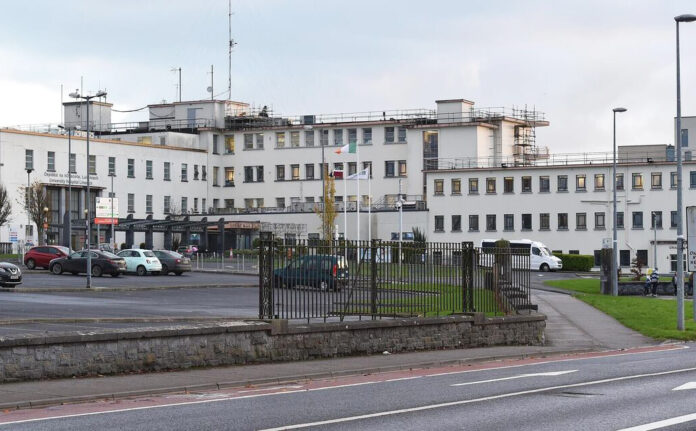
MANAGEMENT at UL Hospitals Group rejected claims made before a Dáil committee by the Mid West Hospital Campaign group (MWHC) that 514 patients have died needlessly as a direct result of delays in the Emergency Department (ED) at University Hospital Limerick (UHL).
MWHC members went before the Dáil Committee on Petitions last week to put forward their case for the re-opening of ED facilities at St John’s, Ennis, and Nenagh hospitals.
The members produced estimated figures based on research performed in the UK (which the group described as having an ED set up “very similar to that in Ireland”) on the connection between fatal outcomes and time spent waiting for an in-hospital bed in an ED.
In a statement, the Hospital Group said that the assertions made by the MWHC were “not evidence-based, with the numbers calculated on the basis, primarily, of research undertaken at least four years ago in another jurisdiction”.
“Without prejudice to the bona fides of the respected authors of that research, the unscientific use of their work to project hospital mortality in a specific region of another jurisdiction, and present this as the conclusion of “extensive research”, is misleading and unhelpful.
“The most recent available research into hospital mortality in this country is the National Audit of Hospital Mortality 2021, published by the National Office of Clinical Audit (NOCA) in July of 2023. In the clinical areas highlighted across the 44 hospitals audited, UHL is within the expected range for in-hospital mortality.”
Regarding the long waits experienced by patients at the UHL emergency department, the ULHG statement said that the Group “regrets the impact on and inconvenience to any admitted patient who has experienced a long wait for an inpatient beds in University Hospital Limerick (UHL)”.
“This is not the standard of care we wish to provide, and we apologise to all patients, and their loved ones, who have been impacted by long waits.
“Regarding the re-opening of the emergency departments in Ennis, Nenagh, and St John’s hospitals, this is not a matter for UL Hospitals Group or the HSE. Government policy titled ‘Securing the Future of Smaller Hospitals: a Framework for Development‘, published in February 2013, shaped the future of Ennis, Nenagh, and St John’s and reaffirmed the integral role these hospitals have to play in the future growth of healthcare in the Mid West: in the provision of ambulatory care, chronic disease management, day surgery, endoscopy, injury units, medical assessment units, and much more”.
The Group asserted that it had “made no undertaking” to open its medical assessment units (MAUs) on a 24/7 basis, and has “no plans” in this regard.
“However, in the past year, national funding of €5.2m has enabled the Group to move the units in all three of our Model 2 hospitals at Ennis, Nenagh, and St John’s from five-day to seven-day services,” the Group’s statement said.
“While MAUs may only be attended with a GP referral, the expansion of the service, the initiative provides GPs across the region with an additional annual total of 7,176 slots, significantly enhancing the acute medical healthcare referral options available to GPs at the weekends.
“Preliminary data indicates a significant positive impact for GPs and their patients, with total attendances across the three units in the year to date already close to exceeding the total MAU attendance for 2022,” the ULHG statement concluded.


